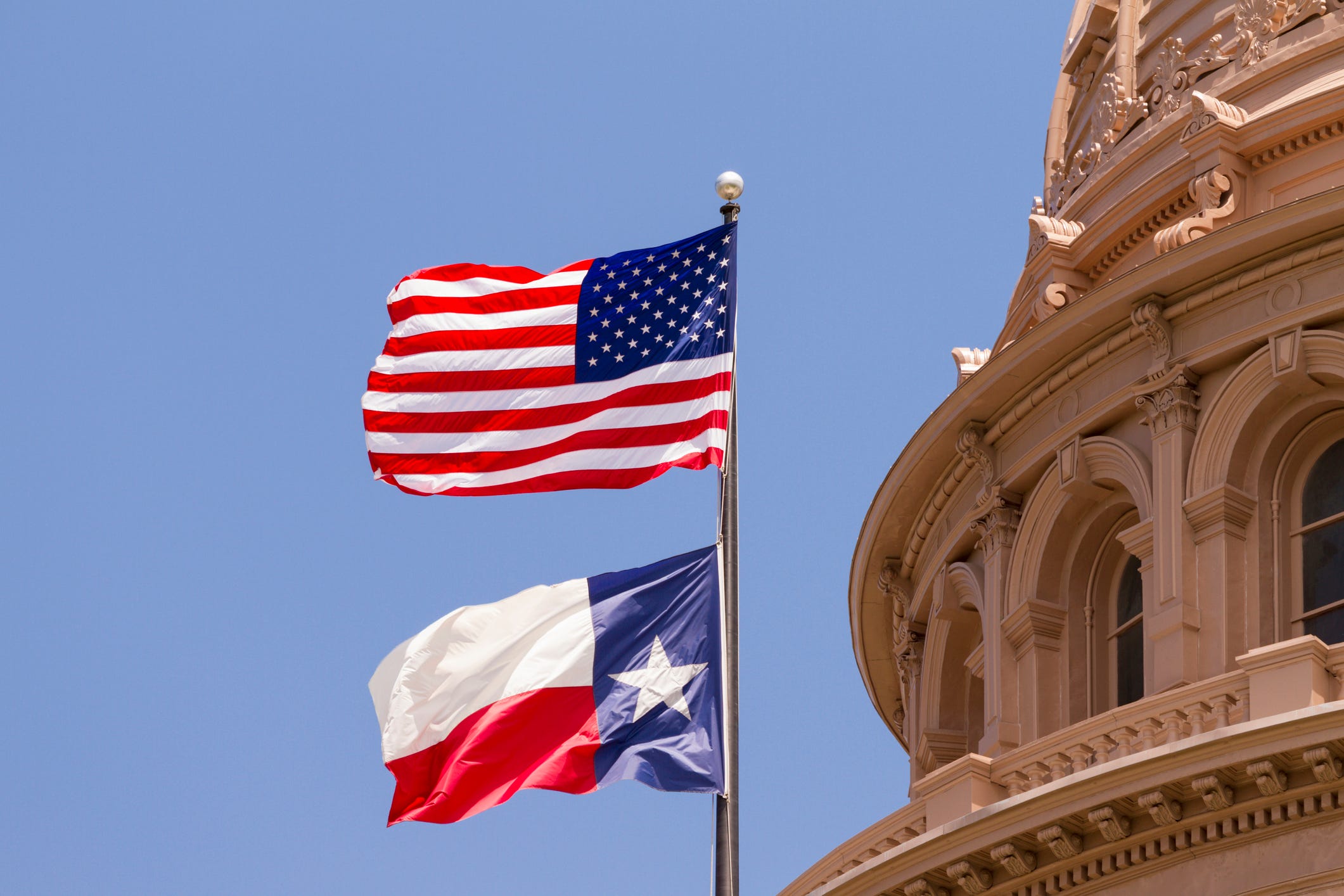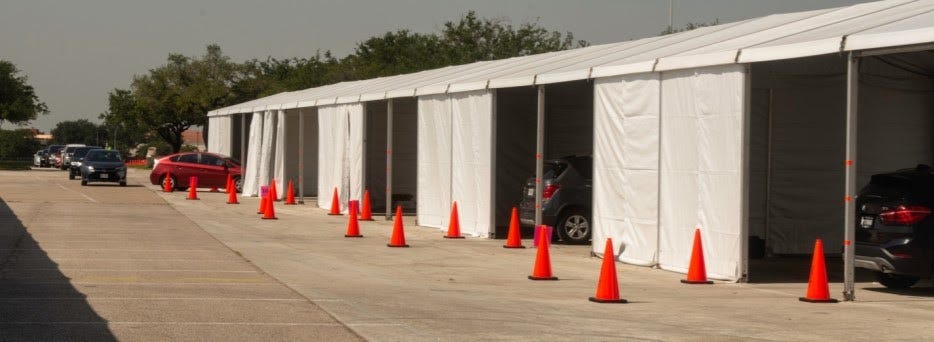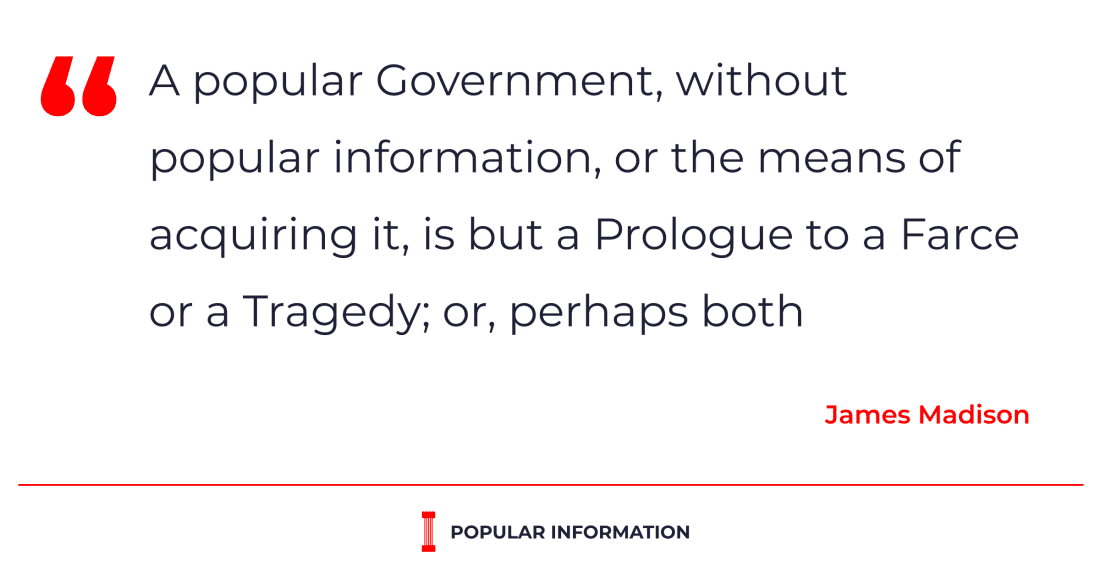 |
With just hours until Election Day, Republicans in Texas are asking a federal court to throw out 127,000 votes in Harris County. The county, which contains most of Houston, is rapidly growing and trending blue. In 2012, Obama beat Romney in the county by 971 votes. In 2016, Clinton defeated Trump by more than 160,000 votes. And since 2016, registration rolls have grown by 234,000 people.
Although Trump is still favored to win the state, the changing politics of Harris County and other metro areas has made Texas competitive. Most recent polls show Trump winning by a few points — but a few show Biden ahead by a point or two. Turnout across the state is through the roof, with more than 9 million Texans casting their ballot early. That already exceeds the total number of votes cast in 2016. Kamala Harris held an event in Texas on Friday, indicating the Biden campaign believes a win is possible.
Republicans are seeking to gain an advantage through the courts. The lawsuits, filed by "a wealthy conservative activist, a Republican state representative and two GOP candidates" seek to invalidate all votes cast at 10 drive-thru polling locations that were set up in Harris County. The sites, which allow people to vote while remaining in their cars, were first announced in June and were designed to give voters safer options during a pandemic. The Texas Secretary of State, a Republican appointed by Governor Greg Abbott, approved the plan. The state's chief election official, Keith Ingraham, called the drive-thru polling locations "a creative approach that is probably okay legally" in a court hearing last month.
Who would bring a case that seeks to throw more than 100,000 ballots in the trash? The lead plaintiff is conservative activist Steve Holtz:
[Holtz] is a fierce opponent of same-sex marriage and was a key figure in the unsuccessful push for the 2017 "bathroom bill" in the Texas Legislature. This year, he has filed numerous lawsuits seeking to overturn Gov. Greg Abbott’s coronavirus restrictions and block Harris County’s efforts to make it easier for people to vote. And he left a voicemail for Abbott’s chief of staff this summer telling him to shoot and kill people protesting the in-custody death of George Floyd.
Even if the Republicans are successful in their 11th hour lawsuit, it's unlikely to play a decisive role in the presidential election. If Texas is close enough for these votes to flip the outcome in Texas, it's probably a good night for Biden elsewhere. But it could be decisive in state or local contests. And the lawsuit provides a window into the game plan of Republicans and the Trump campaign after the polls close on Tuesday.
If the election is close, the Trump campaign will file lawsuits asking the courts to toss votes that have been legally cast. Like the cases currently pending in Texas, these suits will have little objective legal merit. But Republicans are hoping the federal judiciary, which has been stocked with hundreds of right-wing ideologues over the past four years, will side with them anyway.
Republicans strike out in Texas courts
The plan to allow for drive-thru early voting in Harris County was first announced in June. Republicans did not object when it was used in the July run-off elections. Instead, Republicans waited to sue until October 13, hours before early voting was set to begin. The state lawsuit argued that the drive-thru voting locations is an illegal expansion of curbside voting, which "requires workers at every polling place to deliver onsite curbside ballots to voters who are 'physically unable to enter the polling place without personal assistance or likelihood of injuring the voter's health.'" The Republicans argued it was an illegal expansion because people voting at drive-thru locations weren't required to attest to physical or health limitations.
Harris County, however, argues that these locations have nothing to do with curbside voting and are "the same as any other in-person voting." Each drive-through location "has its own election judge and clerks." Unlike curbside voting, these sites are physical locations, "constructed of metal frames and durable tent covers covering a space of at least ten feet by twenty feet with a ten foot wide lane for a car to pass through."
 |
The county notes that "the Election Code explicitly allows temporary and movable structures for voting." It even says that such structures can be created with "ropes." Indeed, "other Texas counties have set up stationary tents at walk-in polling locations to provide extra booths to early voters." The only difference is whether you get out of your car or not.
The initial case sought to stop drive-thru voting, rather than invalidate votes. But despite the fundamental weakness with the Republican's argument. The state courts in Texas ultimately did not need to consider the case on the merits. A Texas appeals court ultimately found that the lawsuit was filed much too late:
[T]he election is already underway. The press conference at which [Harris County Clerk Chris] Hollins announced that the Harris County Clerk’s Office will allow Harris County registered voters to engage in early and election day [drive-thru] voting occurred on September 10, 2020. [The Republican plaintiffs] have offered no justification for their delay until October 13, 2020 to file their petition for writ of mandamus. “The Texas Supreme Court has recognized that the United States Supreme Court has repeatedly warned against judicial interference in an election that is imminent or ongoing.”
That decision was upheld by Texas' Supreme Court, with just one dissent.
Republicans run to federal courts
Having been rejected by the Texas courts, the same group of Republicans filed a similar lawsuit in federal on Wednesday. This time, however, they sought not just to halt drive-thru voting but to segregate and discard votes cast at drive-thru voting locations. (They also filed another suit in state court asking to invalidate ballots, but it was dismissed on Sunday.)
In the federal case, the Republicans argue that the drive-thru locations are unconstitutional. It's a very weak case based on the idea "the state Legislature has sole authority over election law under the U.S. Constitution." This is false. Next, the Republicans argue, Harris County is usurping the state legislature's authority by expanding curbside voting in a way the legislature did not approve. That is also false. As Harris County explains, it is not expanding curbside voting but creating new voting locations in ways explicitly permitted by the legislature.
Moreover, if the Republicans were to somehow succeed on those arguments, they have not demonstrated that the appropriate remedy is to throw out ballots. Hollins explains the issue in his filing to the federal court:
Texas courts have squarely held that even ballots cast under procedures that do not comply with the Election Code are not per se illegal. Instead, votes cast under procedures that conflict with an Election Code provision become illegal only when the Legislature has expressly stated so...When an Election Code provision does not expressly state “a legislative determination that [the] failure” to comply with a
given procedure “requires rejection of the voter’s ballot,” that ballot remains valid...Here, Plaintiffs fail to cite any relevant Election Code provision where the Legislature has indicated that a ballot cast through an improper curbside-voting procedure (should drive-thru voting be deemed such) is “illegal” and therefore should not be counted. The provision governing curbside voting is completely silent on this issue.
Ordinarily, you'd expect such a weak case to be thrown out immediately by the federal courts. But that's not what's happening.
Luck of the draw
When you file a suit in federal court, it is randomly assigned to a judge. The Republicans drew U.S. District Judge Andrew Hanen, "one of the most notoriously partisan conservatives in the federal judiciary." Hanen immediately ordered a hearing on the argument for Monday, November 2. There is concern that Hanen could invalidate the ballots of 127,000 Harris County voters hours before election day.
Hanen, who was appointed "by former President George W. Bush and confirmed by the Senate in 2002," is best known for his extreme hostility to Obama's immigration policies. If Hansen rules in favor of the Republicans and throws out the votes, his ruling could be appealed. But the appeal would go to the 5th Circuit, which "is one of the most extreme and partisan appeals courts in the country and an avowed enemy of voting rights." The last appeal would be the Supreme Court, where, after the confirmation of Amy Coney Barrett, now has a 6-3 conservative super-majority.
While the outcome of this case is uncertain, it does offer a preview of the Republican strategy if the (partial) results are relatively close on Tuesday. Trump plans to seize on any momentary lead and declare victory. Republicans will then file multiple lawsuits to prevent the counting of additional votes, hoping the cases will ultimately be decided by sympathetic judges.
 |


